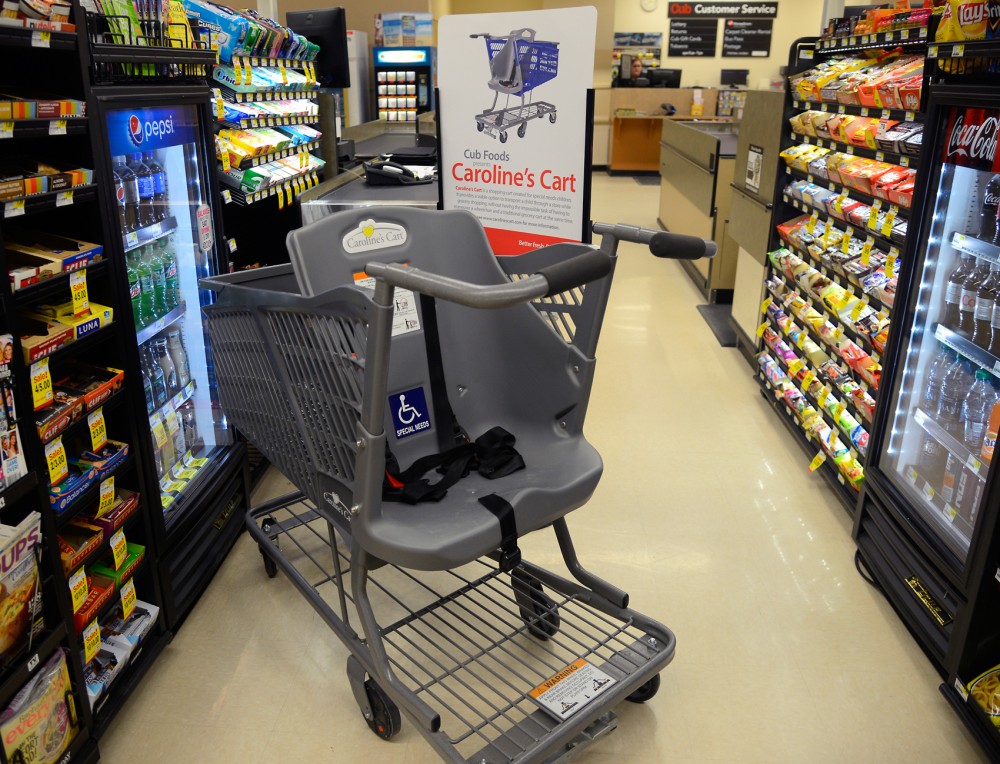A new variety of shopping carts specifically designed to help families of children with disabilities is popping up in stores across Minnesota.
This month, Target announced it would begin using carts from Caroline’s Cart, a company that makes carts for children that are too big for typical shopping carts offered in grocery stores.
The carts are designed with a large, front-facing seat, removing the need for a parent to push around a wheelchair.
Kristy Welker, a spokesperson for Target, said the company conducted a number of trial runs with Caroline’s Cart last February.
“We had actually heard about Caroline’s Cart through a couple of guests who had called our guest relations team,” Welker said. “They said it would be great if Target offered this cart.”
Target will distribute the carts to 1,782 stores nationwide, Welker said. Currently, about 500 stores have at least one of the new carts, and by the end of March, all Target stores will have the specialized cart, she said.
Target Express in Dinkytown will not have a Caroline’s Cart, but the store at the Quarry shopping center in Northeast Minneapolis near the University of Minnesota will receive one on March 28, Welker said.
The Cub Foods at the Quarry is one of more than 70 locations in Minnesota with a Caroline’s Cart in the store. The store has had one since October, said store director Randy Dresher.
Leann Shore, an assistant professor in the University’s occupational therapy program, has worked in pediatric occupational therapy in schools around the Twin Cities for more than 25 years and runs a private practice.
Shore said the cart has very few safety features. Caroline’s Cart focuses on kids with special needs who are higher functioning and need less care than those who are low-functioning, she said.
“I think what they’re doing is really wonderful,” Shore said. “But … I didn’t see any consumer-awareness points. I didn’t see any cautionary remarks in there for those families that have children that are quite low-functioning.”
Kids with certain disabilities often need a range of devices, from store-bought strollers to custom-fitted electric wheelchairs to support their bodies and keep them safe.
“There’s everything from children that walk independently but simply need someone to guide them for their safety all the way to children who literally need a very highly customized wheelchair,” she said. “This is not going to be a substitute.”
Shore said she’s concerned the seat isn’t adjustable and that small children could fall out of it. She said she doesn’t see any head support in the cart, an issue for taller children with head control issues.
While Shore is excited about the carts as a step forward for special-needs children, she said she doesn’t want parents to think it’s necessarily the best option for their child.
“I want to make sure there’s some consumer awareness,” she said. “I do hope it leads to something else.”








